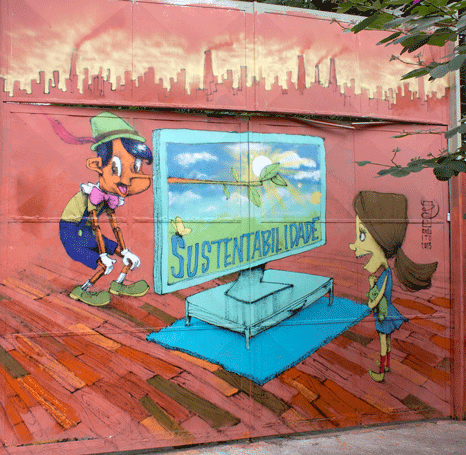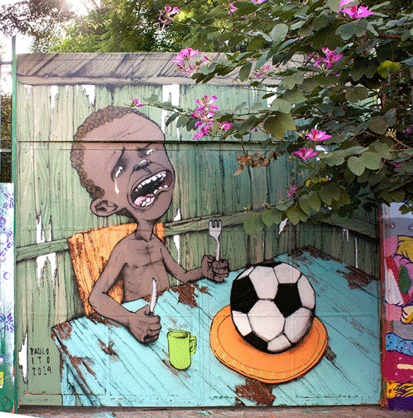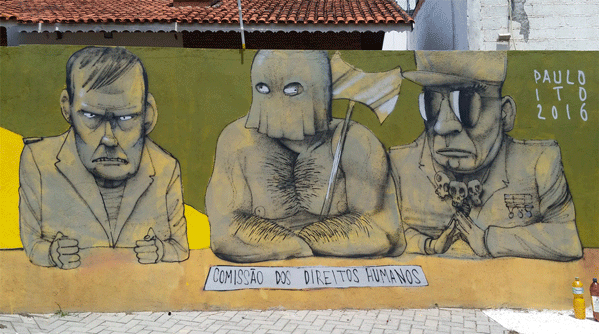In a world where art is often valued for its profitability rather than its message, it can be difficult for artists to do what they love and stand for what they believe in at the same time. Fortunately for muralist Paulo Ito, creating his works out on the streets liberates him from the constraints of the market, allowing him to pursue his craft with freedom.
With subject matter ranging from political corruption, environmental devastation and food insecurity, Ito’s work confronts us with a difficult reality — one that not everyone wants to look at. In an interview with Arts Help, he explains that no matter the reaction, positive or negative, he will never cease to paint about the subjects that need to be addressed.
“I need to talk about it, because I am, as a person, concerned about it,” he explains. “How could I not talk about it?”

Hypocrisy and deception are common themes that Ito tackles in many of his pieces, drawing attention to the ways in which people are manipulated for the sake of political agendas or corporate greed. In one work, he criticizes the adoption of environmentalist rhetoric and visuals as a facade put up to hide the unsustainable practices of a government or corporation — a phenomenon known as greenwashing.

In his home country of Brazil, where deforestation has increased at alarming rates, Ito’s brutally honest works reveal the simple truth that human greed lies at the root of the climate crisis that we are facing today. With his witty but thought-provoking compositions, Ito’s work exemplifies how we can take something like the United Nations Sustainable Development Goal for Climate Action, put it into practice, and instigate tangible change.
One of his most recognized pieces, which depicts a young boy at the dinner table with a soccer ball lying where his food should have been, echoes widespread displeasure among Brazilians with their government and the soccer organization FIFA, who spent millions of dollars on a sports competition while poverty, hunger and injustice persisted right outside the multimillion dollar arenas that today lay in ruin. In voicing concern for these issues, talking about them even if they are unpleasant to think about, Ito brings us one step closer to the Sustainable Development Goals for Zero Hunger and Peace, Justice, and Strong Institutions.


At the end of the day, Ito values message over money. His artwork goes beyond being a pleasant image to look at, instead delving into the pressing social, political and environmental problems that demand our immediate attention. “Maybe I should paint a flower,” he laughs, noting that maybe people would like his work more if he did, “but that’s not me.”
Ito believes that art is far too meaningful to be weighed down by self-promotion and profit-driven mindsets. One day, he notes, maybe he’ll even stop writing his name on his works.
“I don’t want to be a name,'' he says. “I think the work is more important.”
Things like what car you own or how many social media followers you have are irrelevant and distract from the transformative power of art, which is one of the many reasons Ito likes painting in the street. There is no boss, there is no pay, but there is freedom — freedom to paint what you care about. When people see his murals, some may be angry, but some, perhaps, may actually start to care.
See more of Ito's work here.
